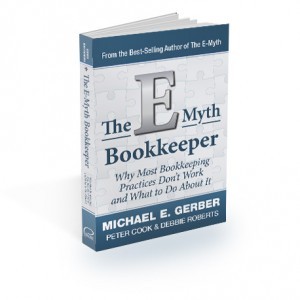I am thrilled to announce, with a mixture of relief, excitement and a tinge of sadness that I sold my bookkeeping business at the end of November last year. A culmination of years of planning. It was so rewarding to see the “baby” I had given birth to, guided through infancy, struggled with during adolescence and watched with pride as it matured and achieved independence, was now moving on. A huge thank you to Michael Kerr from Kerr Capital who brokered the deal and whose expertise and sage advice guided me through the process.
In the E-Myth Bookkeeper, we discuss the importance of having an exit strategy in mind as you grow your bookkeeping business. However, most bookkeepers don’t do that … mainly because they think as a technician instead of an entrepreneur.
An entrepreneur’s plan is to start, grow and exit a business for a profit and move onto the next one. A technician essentially wants to create a job for themselves and, hopefully, is fulfilled and rewarded by looking after clients until they retire. Then they hope that they’ll find someone who will look after their precious clients and not leave them in the lurch. And, when they do, they just give them away without any thought of making a profit.
In the E-Myth Bookkeeper, we suggest that “If done properly, the day you sell your business could easily be the biggest payday of your career – it could even be a bigger number than the total of everything the business has paid you up until that point.”
There are two elements that buyers look for when valuing a bookkeeping business –profit and independence. They will look at the current profit and compare with the profit for the previous two years to see if there is a trend. Then they will ask the question “How much certainty is there that the profit will continue to grow, or at least remain stable after you go?” The biggest risk to the future profit is that your business is completely dependent on you and, when you leave, your clients will leave as well. Besides, if you’re doing the bookkeeping, the new owner has just bought themselves a job. It’s much more attractive, and therefore more valuable, if the business works independently from you.
So when you’re creating the plan for the next 12 months and 5 years, also think about your exit and start to create the strategy to achieve that.
Love to hear your thoughts. You can leave them below.
BTW if you’d like to read more about creating an exit strategy for your business, click on this link to order a copy of the EMyth Bookkeeper.
Article by Debbie Roberts
Subscribe Now
Recent Posts
- Pricing Strategies for Bookkeeping Services in 2025
- Getting Started with Your Own Bookkeeping Business: A Step-by-Step Guide
- AI in Bookkeeping: Trends to Watch in 2025
- Understanding the New Quality Management Systems Law and Its Impact on Bookkeeping Businesses
- What’s Your Biggest Financial Goal for 2025?



